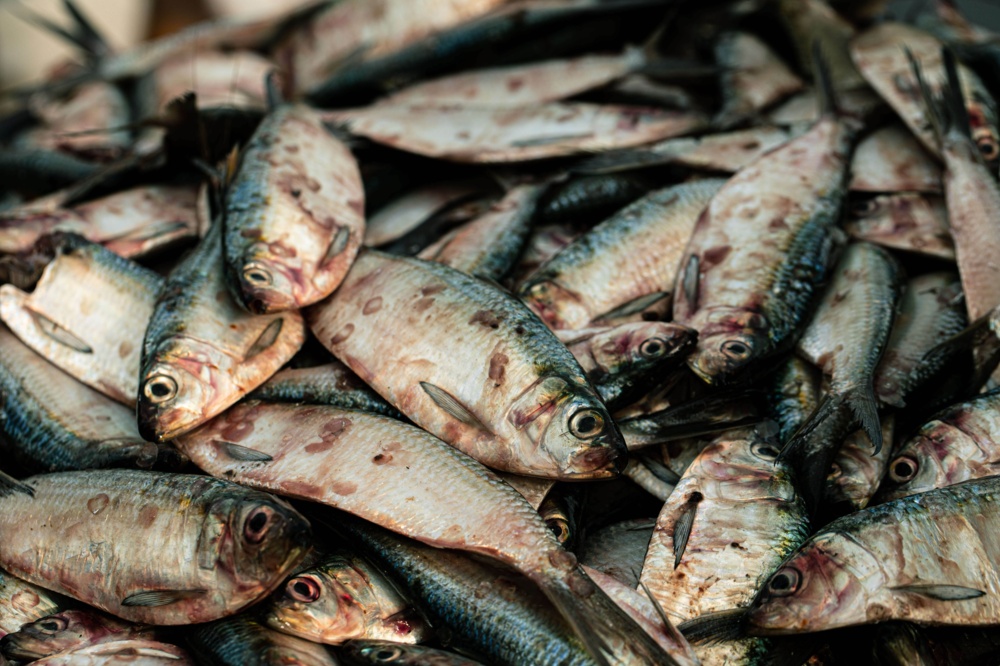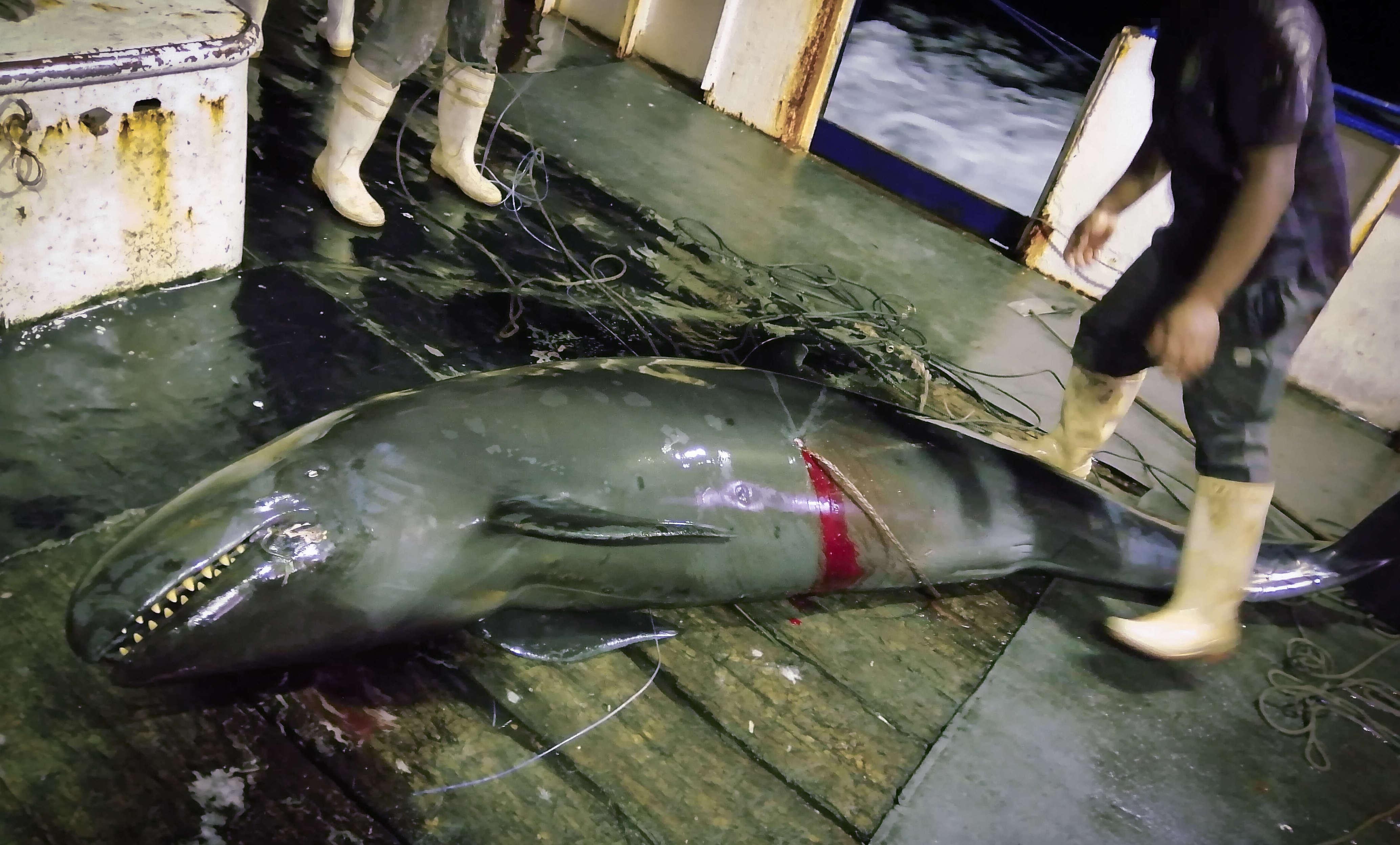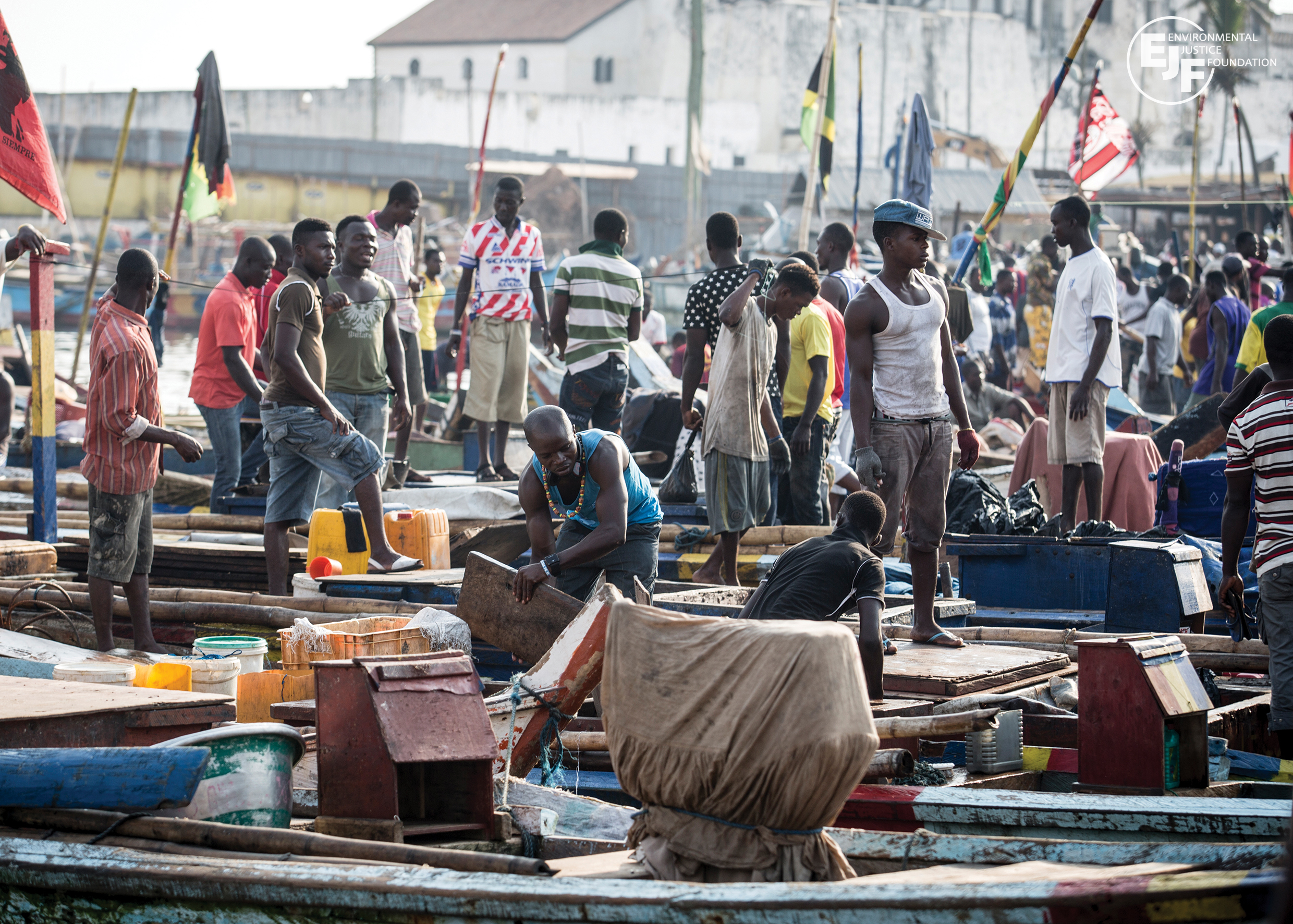
US risks driving destruction and abuse with seafood imports: Will Biden act?
Out on the open ocean, far from law enforcement, a tragedy is unfolding. With 90 percent of fish populations either overfished or fished to their limit and global seafood demand at an all-time high, a growing number of vessels are now going further, staying longer and fishing illegally to bring back ever-diminishing catches. To squeeze every last profit from the sea, some operators are reducing labor costs by engaging with human traffickers and the use of forced, bonded or even slave labor.
My organization, the Environmental Justice Foundation (EJF), completed a four-year investigation into the Chinese distant water fleet in which we found criminality and human rights abuse on an industrial scale: 95 percent of the crew interviewed reported witnessing illegal fishing, and 58 percent said they had experienced or witnessed physical violence. Grueling hours, inadequate food and water, as well as forced labor at the hands of Chinese captains and senior crew was common.
Many in the seafood sector reacted with horror, calling for China to bring its vessels under control and prosecute these offenders. But just because these vessels are not U.S. businesses and do not fly the American flag, that does not absolve the U.S. of all responsibility. After all, the U.S. is the world’s second largest seafood importer, and China is its largest seafood trading partner.
An opaque web of complex corporate structures — often designed to obfuscate ownership and responsibility for illegal acts — make it extremely difficult to trace supply chains. U.S. Customs and Border Protection has done its best – in 2021, for instance, the Chinese Dalian Ocean Fishing Company Ltd was banned from importing seafood into the United States. Along with illegal shark finning and dolphin catch, the crew from the Dalian vessels reported physical and verbal abuse — especially to migrant crews — along with threats, dangerous conditions and bonded labor.
It’s good news that the perpetrators of these crimes no longer have access to the U.S. market and that American shoppers are not unknowingly facilitating this abuse. But the Dalian fleet is 32 vessels among thousands — in an industry as opaque as fisheries we cannot hope to make progress by picking off rogue fleets one by one: a deeper, systemic change is needed.
The starting point is simple but powerful: transparency. This is the publishing and sharing of information — such as vessel license lists, history of offenses and full ownership details — which can help governments, law-abiding fishing companies and retailers to work together to rid our ocean of these damaging operators. If just 10 simple, low-cost measures became commonplace, they could revolutionize global fisheries.
Let’s consider an example in West Africa, which brings to light the toxic injustice of the current situation. West Africa is known to be rife with illegal fishing, and many fish populations there are heavily exploited, to the point of possible collapse, which would spell disaster for impoverished coastal communities. The Chinese bottom trawl fleet catches an estimated 2.35 million tons of seafood there every year — by some estimates, around half of China’s total distant-water catch — valued at over U.S.$ 5 billion.
In 2020, EJF raised the alarm regarding the threat posed by around 50 Chinese industrial fishing vessels that were requesting licenses to fish in Senegalese waters. We were able to show that several of the vessels had records of illegal fishing — and thankfully, the Senegal government rejected the applications. However, the investigation was arduous, and a significant amount of time was wasted because no official information on their history of illegality had been made publicly available by the relevant countries.
This is where we need the Biden administration to lead. At the Our Ocean conference this week the U.S. can make clear that it will not accept imports of seafood unless they are traceable and the countries that send them are fully transparent. The U.S.’s import control scheme should be expanded to all seafood species, reflecting the wide range of fisheries in which China operates, and it should require all data needed to allow authorities and businesses to ensure imports are legal, ethical and sustainable.
If the U.S. also aligns these watertight measures with other major seafood importers, such as the European Union and Japan, it can transform international fisheries, safeguarding the ocean and the fishing industry itself.
EJF’s report shows the huge risks in Chinese seafood imports, and recently the U.S. has, for different reasons, taken action to block Russian fish imports. However, without transparency in global fisheries governance and robust traceability in supply chains, it is impossible to keep out unwanted seafood — whether caught by modern-day slaves or linked to Russian President Vladimir Putin’s war machine.
It is a cause for international shame that this chronic lack of transparency in the fishing industry can still be used to perpetuate human rights abuses and destroy ocean ecosystems. Biden can and must act now to safeguard ocean life, food security and livelihoods around the world, stepping up to provide the international leadership we need.
This piece was originally published by The Hill and is shared here with permission
SIGN UP FOR OUR EMAILS AND STAY UP TO DATE WITH EJF

